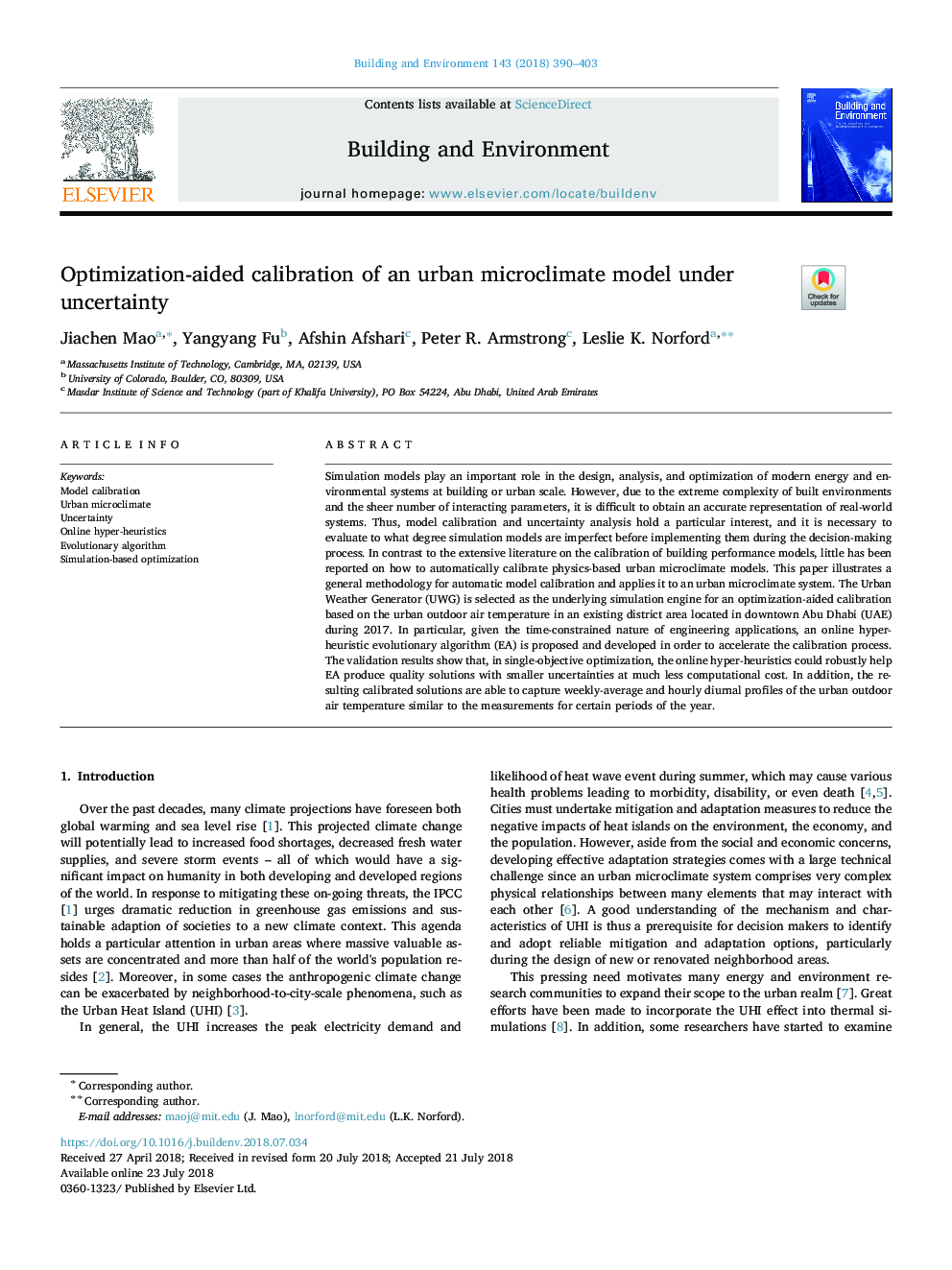| Article ID | Journal | Published Year | Pages | File Type |
|---|---|---|---|---|
| 6696601 | Building and Environment | 2018 | 14 Pages |
Abstract
Simulation models play an important role in the design, analysis, and optimization of modern energy and environmental systems at building or urban scale. However, due to the extreme complexity of built environments and the sheer number of interacting parameters, it is difficult to obtain an accurate representation of real-world systems. Thus, model calibration and uncertainty analysis hold a particular interest, and it is necessary to evaluate to what degree simulation models are imperfect before implementing them during the decision-making process. In contrast to the extensive literature on the calibration of building performance models, little has been reported on how to automatically calibrate physics-based urban microclimate models. This paper illustrates a general methodology for automatic model calibration and applies it to an urban microclimate system. The Urban Weather Generator (UWG) is selected as the underlying simulation engine for an optimization-aided calibration based on the urban outdoor air temperature in an existing district area located in downtown Abu Dhabi (UAE) during 2017. In particular, given the time-constrained nature of engineering applications, an online hyper-heuristic evolutionary algorithm (EA) is proposed and developed in order to accelerate the calibration process. The validation results show that, in single-objective optimization, the online hyper-heuristics could robustly help EA produce quality solutions with smaller uncertainties at much less computational cost. In addition, the resulting calibrated solutions are able to capture weekly-average and hourly diurnal profiles of the urban outdoor air temperature similar to the measurements for certain periods of the year.
Keywords
Related Topics
Physical Sciences and Engineering
Energy
Renewable Energy, Sustainability and the Environment
Authors
Jiachen Mao, Yangyang Fu, Afshin Afshari, Peter R. Armstrong, Leslie K. Norford,
